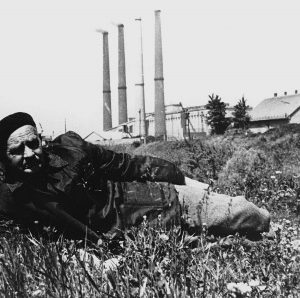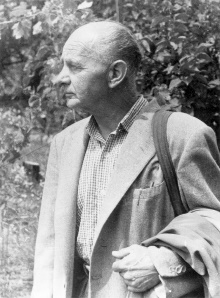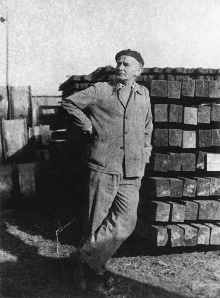The Institute’s name choice
Our decision to wear the name of Béla Hamvas stemmed from the author’s invaluable and highly versatile body of work paired with a life story of symbolic significance.
Béla Hamvas is one of the towering minds of twentieth-century Hungary, whose humanism and culture put him in vehement opposition to all totalitarian dictatorships, both Nazism and Communism. His life and life’s work is a productive amalgam of his European and Hungarian identity presented with a moral and spiritual force that serves as an example to later generations.
His life’s work covers an extremely wide palette; however, the subject of inquiry in all his literary, philosophical, psychological, and spiritual writings, in his system of values and his Weltanschauung is always the very same: a universal human culture.
Béla Hamvas was born in Eperjes (today Prešov in Slovakia) in 1897 as the son of an Evangelical pastor, teacher, and author.
He studied Hungarian and German at the Pázmány Péter Catholic University.
In the late 1930s, he began to work as a journalist and a librarian. That is when his first works were published.
In 1942, he was drafted to fight on the Russian front. Later, he was transferred to Germany, where he escaped from. His apartment was hit by a bomb. Meanwhile, he never stopped working. He finished the first volume of his epoch-making book, Scientia Sacra.
The communist cultural regime persecuted him from the very beginning. His highly talented contemporary of similar disposition, Sándor Márai, chose emigration. Béla Hamvas decided to stay. From 1951, he worked as an unskilled hand and warehouse worker, first in Inota then in Tiszapalkonya. These were the circumstances his enormous body of work was born. “I’ll write my books in a ditch if I have to”, he wrote at the time.
In 1957, he tried in vain to regain his position as a librarian.
In 1964, he retired.




